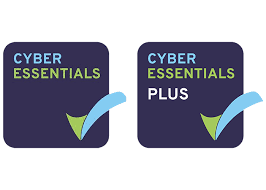Discover the ins and outs of selecting the perfect IT support provider for your small business
With technology rapidly evolving and becoming an integral part of business operations, small businesses need reliable and efficient IT support to keep up with the competition. This blog post will provide a comprehensive guide to small business IT support, covering everything you need to know about choosing the right provider for your needs. We’ll explore the different types of IT support services, the benefits of outsourcing IT support, and the critical factors to consider when selecting a provider.
Table of Contents:
- The Importance of IT Support for Small Businesses
- Types of IT Support Services
- In-House vs. Outsourced IT Support
- Benefits of Outsourcing IT Support
- What to Look for in an IT Support Provider
- Questions to Ask When Choosing a Provider
- Tips for Managing IT Support Costs
- Common IT Support Mistakes to Avoid
- Final Thoughts
- The Importance of IT Support for Small Businesses
In today’s digital age, every business relies on technology to some extent. Whether it’s managing customer relationships, processing financial transactions, or streamlining internal communication, IT systems are vital for smooth operations. For small businesses, effective IT support can make the difference between success and failure. The right IT support can:
- Improve efficiency by ensuring all systems are running optimally
- Enhance security by protecting against cyber threats and data breaches
- Ensure business continuity by quickly resolving issues and minimizing downtime
- Foster growth by providing scalable solutions that can adapt to changing business needs
- Types of IT Support Services
IT support services can be broadly divided into three categories:
a. Managed IT Services: A managed IT services provider (MSP) takes care of all aspects of your IT infrastructure, from hardware and software installation to regular maintenance, updates, and security. This comprehensive support model is ideal for small businesses that don’t have the resources to manage their IT systems in-house.
b. Break/Fix IT Services: With this model, IT support is provided on an as-needed basis. If a problem arises, the provider will come in and fix the issue. This can be a cost-effective option for businesses with minimal IT needs but can lead to longer downtimes in the event of an issue.
c. IT Consulting: IT consulting services focus on providing strategic guidance and planning for your business’s technology needs. Consultants can help you identify areas for improvement, assess security risks, and develop a roadmap for future growth.
- In-House vs. Outsourced IT Support
Small businesses often face the decision of whether to hire an in-house IT team or outsource their IT support needs. Both options have their pros and cons:
In-House IT Support Pros:
- Better understanding of your business’s unique needs and processes
- Faster response times in the event of an issue
- Greater control over IT resources and priorities
In-House IT Support Cons:
- High costs, including salaries, benefits, and training expenses
- Limited expertise and resources compared to an external provider
- Inability to scale support as the business grows
Outsourced IT Support Pros:
- Access to a wide range of expertise and resources
- Cost savings compared to hiring and maintaining an in-house team
- Scalability to accommodate your business’s changing needs
Outsourced IT Support Cons:
- Potential for slower response times and less personalized support
- Dependence on an external provider for critical IT functions
- Potential security risks if the provider doesn’t adhere to strict security standards
- Benefits of Outsourcing IT Support
Outsourcing IT support can provide numerous benefits for small businesses, including:
- Cost Savings: Outsourcing IT support can be more cost-effective than hiring an in-house team. You’ll save on salaries, benefits, and training expenses while gaining access to a wider range of expertise and resources.
- Access to Expertise: By outsourcing IT support, you’ll have access to a team of experienced professionals with diverse skills and knowledge. This can help ensure that your business benefits from the latest technologies and best practices in the industry.
- Scalability: Outsourced IT support providers can easily scale their services to meet your business’s changing needs. Whether you’re growing rapidly or downsizing, an outsourced team can adapt their support accordingly.
- Focus on Core Business Functions: With IT support taken care of by an external provider, your team can focus on core business functions and strategic growth initiatives.
- Improved Security: Reputable IT support providers will adhere to strict security standards and employ cutting-edge cybersecurity measures. This can help protect your business from data breaches and other cyber threats.
- What to Look for in an IT Support Provider
When choosing an IT support provider for your small business, consider the following factors:
- Experience and Expertise: Look for a provider with a proven track record of delivering effective IT support to businesses in your industry. Check their credentials, certifications, and areas of expertise.
- Availability and Response Time: Your provider should offer round-the-clock support and have fast response times to minimize downtime in the event of an issue.
- Security Measures: Ensure that your provider adheres to strict security standards and employs the latest cybersecurity technologies to protect your business from potential threats.
- Scalability: Choose a provider that can scale their services to accommodate your business’s growth and changing needs.
- Customizable Solutions: Your IT support provider should offer tailored solutions that align with your specific business objectives and requirements.
- Questions to Ask When Choosing a Provider
Before selecting an IT support provider for your small business, ask the following questions:
- How long have you been providing IT support services?
- Can you provide references from other clients in my industry?
- What certifications and credentials do your technicians hold?
- What is your response time in the event of an issue?
- How do you ensure the security of your clients’ data and systems?
- What type of support plans do you offer, and can they be customized to meet my needs?
- How do you stay up-to-date with the latest industry trends and technologies?
- Tips for Managing IT Support Costs
While outsourcing IT support can offer significant cost savings, it’s essential to manage your expenses effectively. Here are some tips for controlling IT support costs:
- Assess your needs: Determine your business’s specific IT support requirements and prioritize the most critical services.
- Choose the right support model: Evaluate the pros and cons of managed services, break/fix support, and IT consulting to determine the best fit for your business.
- Negotiate pricing: Discuss pricing options with your provider and negotiate for the best possible rates.
- Monitor performance: Regularly assess the performance of your IT support provider to ensure they’re meeting your expectations and delivering value for money.
- Common IT Support Mistakes to Avoid
To get the most out of your IT support partnership, avoid these common mistakes:
- Choosing the cheapest provider: While cost is an important factor, don’t sacrifice quality for the sake of saving money. A low-cost provider may not deliver the level of service and expertise your business needs.
- Ignoring security: Ensure your IT support provider has robust security measures in place and prioritize cybersecurity in your IT strategy.
- Not setting clear expectations: Communicate your specific needs and objectives to your IT support provider to ensure they’re aligned with your business goals.
- Failing to monitor performance: Regularly assess the performance of your IT support provider and address any issues that arise promptly
Final Thoughts
Choosing the right IT support provider for your small business is crucial for maintaining smooth operations, protecting your data, and fostering growth. By understanding the different types of IT support services, weighing the pros and cons of in-house and outsourced support, and considering the factors outlined in this guide, you can make an informed decision that meets your business’s unique needs.
Remember to prioritize experience and expertise, ensure your provider offers scalable and customizable solutions, and maintain open communication to get the most out of your IT support partnership. Regularly monitoring the performance of your provider and addressing any concerns promptly will help ensure that your business continues to benefit from efficient and secure IT systems.
With the right IT support provider in place, your small business will be well-equipped to tackle the challenges of the digital age and thrive in an increasingly competitive landscape.





